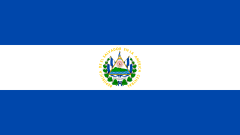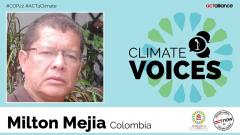
see also: Critics of El Salvador mass trials suspect re-election ploy
source: Al Jazeera
El Salvador’s Congress has approved group trials for the tens of thousands of people arrested during President Nayib Bukele’s crackdown on criminal gangs, which has given the country one of the world’s highest incarceration rates.
Wednesday’s legislation will allow prosecutors to simultaneously try hundreds of people alleged to be part of the same criminal group or from the same area of the Central American country.
El Salvador has been under a state of emergency for 16 months, sparking the arrest of more than 71,900 alleged gang members. Some 6,000 people have been released, official data show.
Legislators from Bukele’s New Ideas party, which has a majority in Congress, said the measure seeks to boost order and efficiency. It passed by 67 votes in favour and six against.
Justice Minister Gustavo Villatoro says up to 900 defendants from the same group could be prosecuted at a time.
The state of emergency has been popular among Salvadorans. Proponents point to a significant drop in homicides and crimes such as extortion and drug dealing.
But the policy has drawn criticism from Salvadoran and international rights groups, who say it has led to human rights abuses such as torture, deaths in custody and arbitrary detentions, particularly among young men in poorer neighbourhoods.
The legislators who passed the measure on Wednesday said people found not to have gang affiliations should be released.
Opposition politicians and rights groups, however, say group trials risk depriving detainees of their right to due process and their individual presumption of innocence.
“‘We’re not arresting innocent people’ turned into ‘We’re arresting innocent people but not keeping them’, which turned into ‘We’re keeping them but the courts will set them free eventually’,” said Manuel Melendez, a PhD candidate at Harvard University and researcher on Salvadoran politics.
Ingrid Escobar, spokesperson for Humanitarian Legal Aid, a group providing assistance to Salvadoran detainees, said prisoners are at risk of being tried for crimes they did not commit.
She warned they could be prosecuted simply “for living in a place stigmatised by gangs, despite not necessarily being gang members themselves”.
On July 14, at the Inter-American Commission on Human Rights, rights organisations denounced the deaths of 174 people in state custody and over 6,400 documented human rights abuses during the state of emergency.
The government and attorney general’s office denied these allegations.
Legislators also approved a bill that will raise the maximum sentence for gang leaders from 45 to 60 years.

